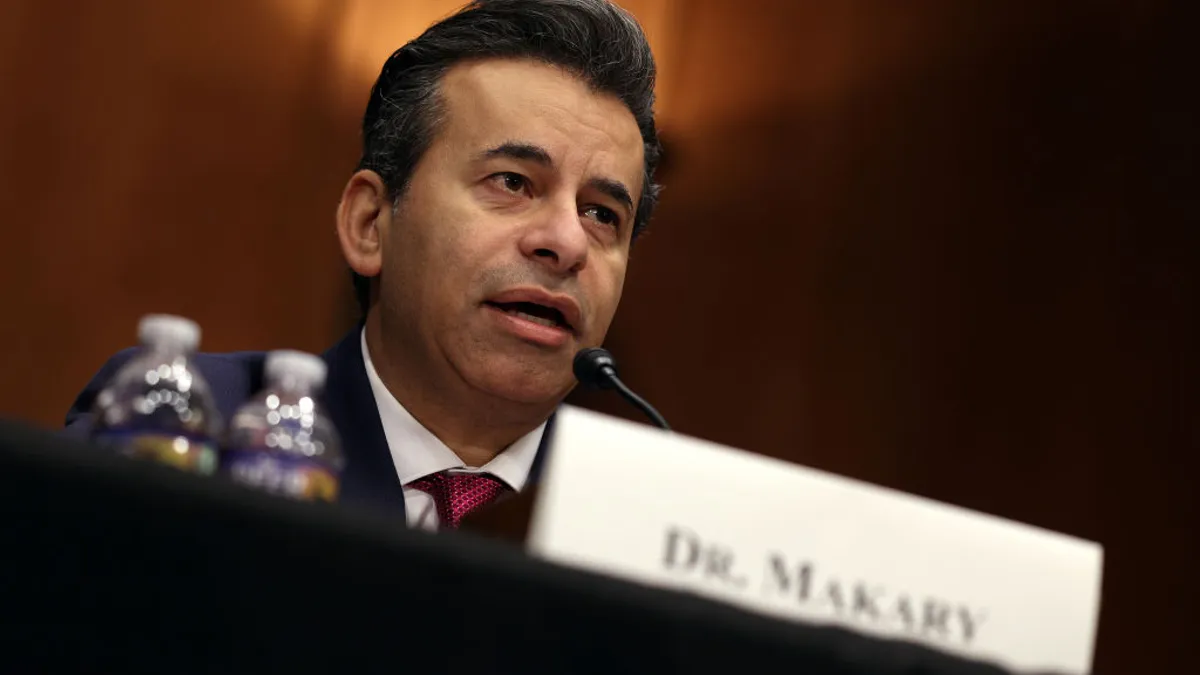Smith & Nephew has released mid-term guidance, predicting it can work through current headwinds to emerge as a higher-growth business that delivers consistent organic sales increases of 4% to 6% by 2024.
British medtech company Smith & Nephew has endured a tough pandemic, with problems specific to its business compounding the industry-wide challenges caused by COVID-19. Yet, CEO Roland Diggelmann, after two years in the job, now thinks Smith & Nephew is at an inflection point and is confident enough in the platform he has laid during his tenure to predict growth that exceeds historical levels.
"In the last few years, we've added new growth drivers, we've restructured our commercial model and we've embedded a new culture. We're now at a point of transforming to a structurally higher growth company," Diggelmann said at last week's investor day.
The projected organic growth of 4% to 6% is underpinned by a belief that Smith & Nephew can sustain its recent profitable growth in wound care and sports medicine, while reestablishing the momentum that its orthopaedic franchise had before it ran into an array of problems.
Smith & Nephew saw orthopaedic sales rebound after the winter COVID-19 wave but the recovery fell short of analyst expectations. Second quarter sales were down 6% on the comparable period of 2019. The slow recovery, which continued in the third quarter, reflected the fact Smith & Nephew has issues specific to its business, in addition to a multitude of challenges faced by the wider orthopaedic sector. Diggelmann put an upbeat spin on the situation.
"There are still challenges in orthopaedics, but actually they're quite narrow. What we need to fix are the short-term supply constraints, which have interrupted the progress that we've had in hips and trauma, and then the current slow growth in knees. I think it's important to remember that [slow growth] came after many years of outperformance and when we fill the portfolio gap with the rollout of cementless knees we're going to be very successful," Diggelmann said.
Diggelmann went into more detail about the current status of the specific and industry-wide challenges later in his presentation. Smith & Nephew's specific supply problems related to staffing at its facility in Memphis, Tenn. After stepping up hiring, Diggelmann expects output to improve as new staff gets up to speed.
Smith & Nephew has also faced specific logistics challenges but the backlog of finished goods it needs to get to customers is falling, according to Diggelmann. While warning that "there may be yet some bumpiness from external disruptions to freight," the CEO said the Smith & Nephew-specific challenges should be fully resolved in the first half of next year.
Even if Smith & Nephew hits that target, the company, like its peers, is still likely to face supply challenges in 2022.
"It's a little harder to predict the widely reported global shortages of some raw materials and components, such as electronics," Diggelmann said. "We're closely managing supply issues — that's on a case by case basis — and we have simplified our processes to be more opportunistic and move quickly when additional supply becomes available."
Supply chain problems are part of a range of issues that includes healthcare staffing and inflation that are affecting Smith & Nephew and its orthopaedic rivals such as Johnson & Johnson, Stryker and Zimmer Biomet. The confluence of factors led companies to predict a relatively slow recovery from the delta variant wave even before soaring omicron cases raised the prospect of further delays to non-emergent procedures.
The successive waves of COVID-19 have created big backlogs of patients waiting for hip and knee surgery, particularly in some European markets, and raised the prospect of medtech companies benefiting from a surge in procedures as healthcare capacity improves.
Smith & Nephew CFO Anne-Françoise Nesmes noted the backlog but downplayed the prospect of it being converted quickly into medtech sales.
"There's more recovery to come from COVID. For joint replacement, we still expect to see a benefit at some point of the pent-up demand when healthcare systems catch up, although unfortunately, we all know that new variants of COVID are a reminder of how difficult it is to predict the timing of the recovery," Nesmes said. "Our assumption is that the waiting list will be addressed over time, but the speed will vary by market and will be generally very gradual."
The company's growth forecast does not depend on pent-up demand.
Smith & Nephew's prepared remarks in the mid-term update lacked a discussion of the 2021 guidance, reflecting the fact the company believes it is still on track to deliver the forecast it made at the time of its third-quarter results. At that time, Smith & Nephew said it expects to hit the bottom end of its 10% to 13% full-year sales growth guidance. Smith & Nephew grew 14% over the first nine months of the year.

















